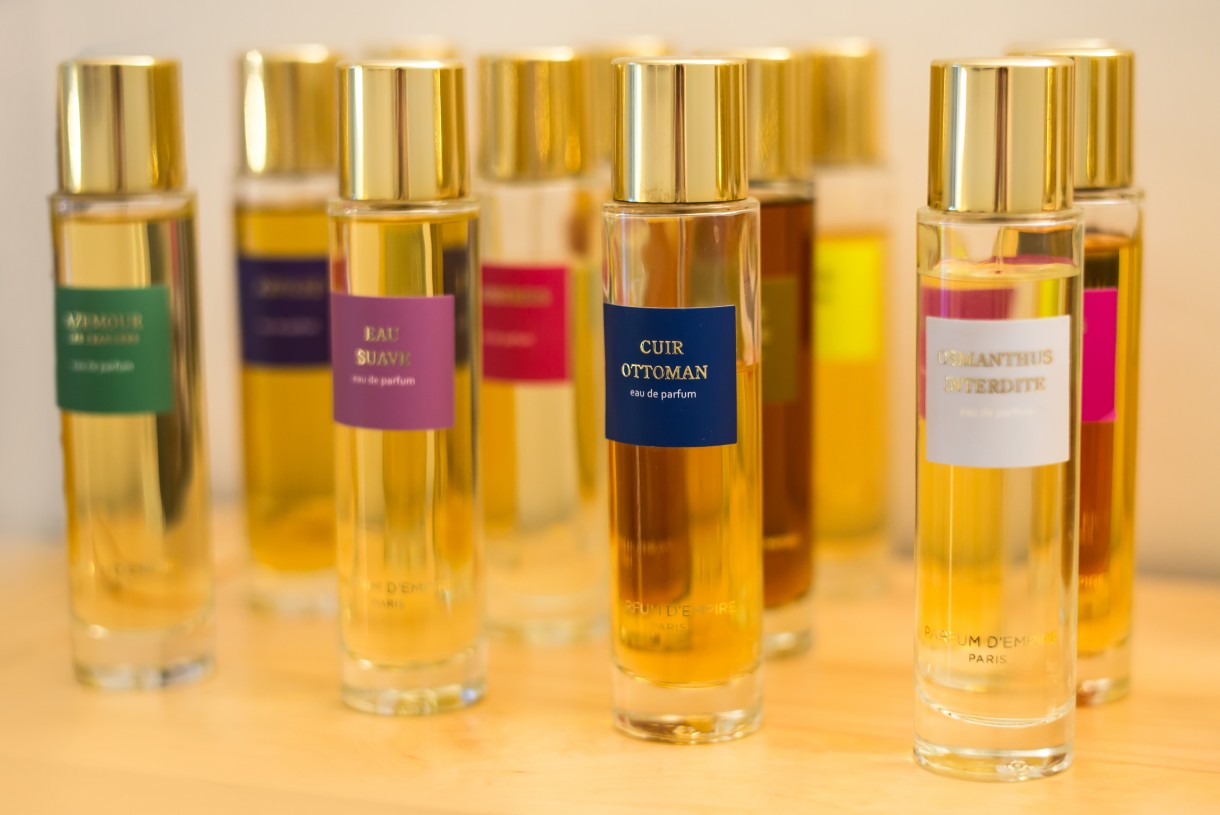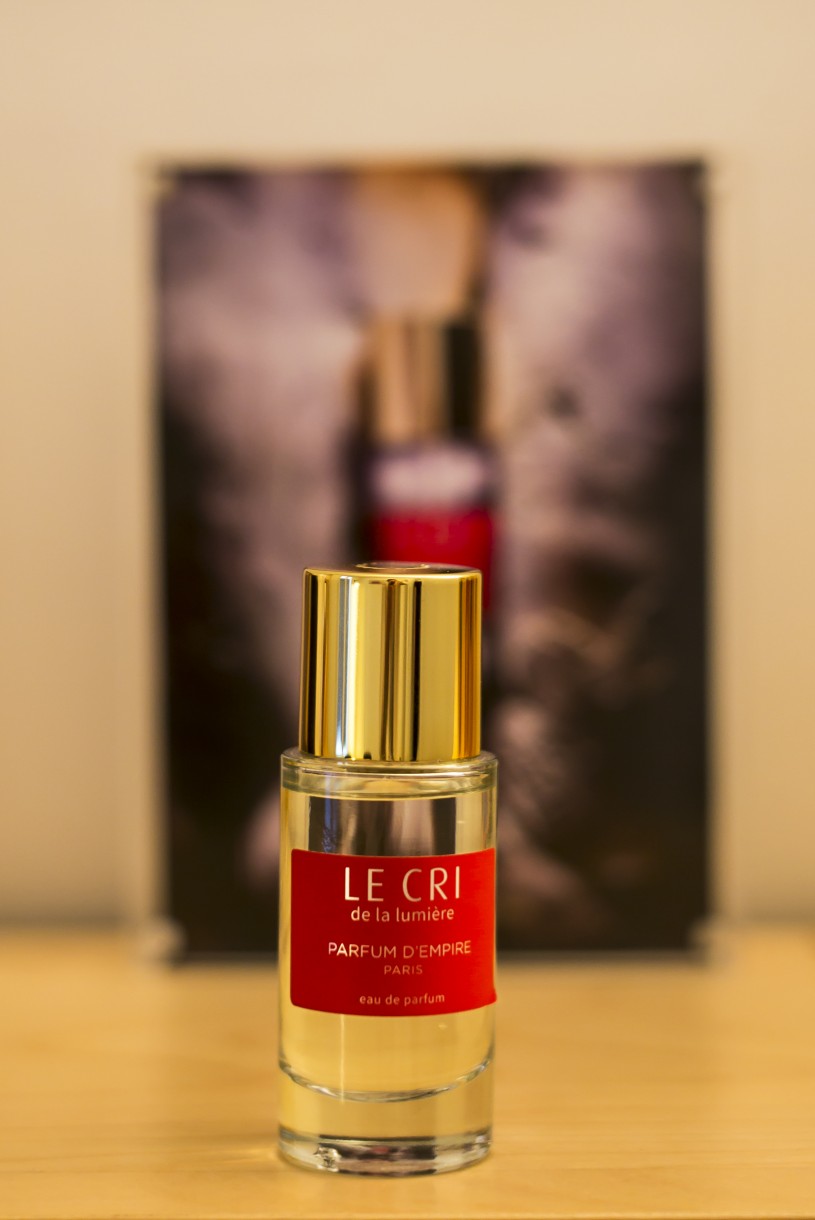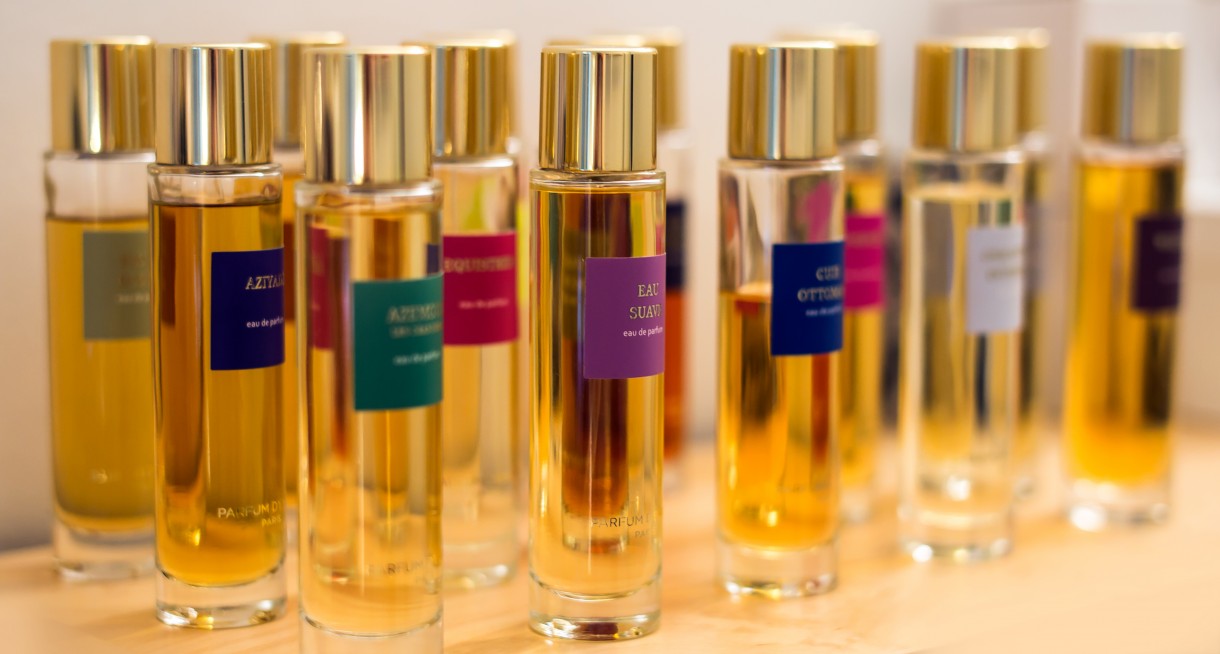Marc-Antoine Corticchiato, the eminent nose
Behind his casual, mischievous yet shy look, Marc-Antoine Corticchiato is one on the grey eminences of the French perfumery and an impressive scientific background that has culminated with a Ph.D. in the analysis of the odorous plants extracts. But those who know Marc-Antoine better are even more fascinated by his atypical path, by all those contrasting specks of his personality.
Born in the the sunny Azemmour, fortified town South of Casablanca where his father has built from scratch a flourishing fruit tree business, Marc-Antoine's blood simmers with the strength and zest of his Corsican ancestry.
The Moroccan orangery and the Corsican maquis – two distinct geographies, but similar in their way of bringing together fertility and aridity, mildness and hostility, and many other antithetical notions – draw the big framework of Marc-Antoine's olfactory spectrum. From the age of 8, the discovery of the equestrian world brought to his nose animal and leather scents, more or less noble, adding an extra depth to his already thriving olfactory vocabulary.
Unconsciously molded by these three universes, young Marc-Antoine dedicates himself to the study of the odorous raw materials and founds a little later a unit of extraction of perfume plants in Vietnam then in Madagascar, in his attempt to make the most of a molecule.
Finally, in 2003, he decides to combine theory and practice at the service of his own brand, Parfum d'Empire. Although we would be tempted to think of a political institution, by virtue of his Corsican roots, Marc-Antoine's empire isn't about that. His own empire is about the realm of the senses, the only one open to madness, revelry and immoderation. Abiding by his own paradoxes, the sober, even classic shape of his bottles conceals a far less orthodox decoction of leather and animal notes, which compose the DNA of his olfactory signature.
Faithful to his independence, Marc-Antoine never wanted to make a choice between olfaction and sensation. This interview reflects the desire to “dive” inside Marc-Antoine mind and bring to light the forces that made him the perfumer, the nose, the scientist and the creator he is today.
An intense exchange on olfactory determinism, independence as a state of mind and perfume as a business.

Olfactory Determinism
In relation to the three olfactory universes in which you grew up, can one speak of an olfactory determinism?
Marc-Antoine: Of course. In the olfactory taste, we are always influenced by what we crossed, by our culture, by everything our nose came upon. Most of the time, it is done in an unconscious way. I think it’s the same for everybody, whether we’re talking about a perfumer or not – maybe a little less for a perfumer because he is more aware about smells. I think that I like the sensual, oriental, sexual notes because, after all, these three olfactory universes have accompanied me from birth until today.
The Moroccan village with its animal notes of sheep, cows, soil, henna, firewood... I lived among the Moroccan people of the village, the children of my parent’s workers. I grew up with them. Of course, the notes of the souk, the classical oriental notes: dates, fruits... In the Corsican maquis, we have Cistus and immortelle. There too we will find this sensual oriental twist. As for the third universe, the horses: from saddlery to the horse’s breath, the sweat, the dung, the hay, the straws... All these notes left an imprint on me.
From what I remember, the Marrakech souk is a very aggressive environment, from all points of view: visual, audible, olfactory...
M-A: For me, it’s part of my life, my childhood, so I don’t have the same perception. It’s very personal, like the smell of horse dung, the hot urine of horses on the burning macadam of Marrakech in May-June, it is very particular.
Can we say that customers, in their buying decision, they always look for smells that remind them of their own experiences and olfactory memories?
M-A: Unconsciously, it all comes down to love and hate. Basically, the olfactory preferences can be explained by one’s background, one’s past, what we liked, what smells we have experienced and that’s why the smell is so linked to emotion. Without insisting on this, when you are young and you discover a new smell for the very first time, if it is linked to a moment of relaxation, joy, a positive moment, it will remain forever a friendly, comforting olfactory note. On the contrary, when you first discover it in a moment of stress, hate, anger, resentment, it becomes something negative.
Where does your interest in fragrant raw materials come from?
M-A: I like the raw materials, whether in the perfume as in the kitchen and gastronomy. I do not like complicated things. When I think about my career, my childhood, I had a mother who was obsessed about the beautiful raw materials in everything she did. Before we even talked about organic and organic products at the time, she was already doing that. Actually, I realized very late that the concern for beautiful raw materials was transmitted by my parents. By my mother and also by my father who loved to organize banquets and gather around his table people of all religions, genders. He had this Great Gatsby side, with a lot of generosity.
In an old article, you spoke of the primary role of perfume, that of interfacing between men and gods. Is it still valid or necessary today? Does modern man still need sacred?
M-A: More than ever! The spirituality... There is a form of spirituality today which seems to grow more and more important. There is a new spiritual awareness and questioning coming from both young and old, rich and poor people... Everyone is looking for spirituality in their own ways. It’s no coincidence that in recent years we’ve been talking about meditation, yoga, things like that.
Do you have a sacred place?
M-A: In Corsica, at home, in the maquis, and then I have sacred objects. I have a baroque virgin whom I love very much, who has its story ...
You mentioned psychoanalysis.... The story, the personal experience in your case is it a starting point or rather a destination? For example, “Russian Ambre” was originally a result of your desire to recreate the atmosphere in the time of the tsars. Later, you realized that it actually came back to you, to the atmosphere you had in your family.
M-A: I have the chance to be the founder of this brand and do what makes sense for me, whatever goes through my head, very spontaneously. I am aware that this is rather rare in perfumery. Even though many brands pretend to be “no limit”, that they do whatever they want to do, we know very well that in three quarters of the cases it is not true.
In the process of doing what moves us, if we look further, there is always an origin, a deep anchor, conscious or unconscious. In “Ambre Russe”, for instance, the Russia of the last tsars was my original intention. However, later I have realized that this perfume was carrying inside it the excesses and the spirit of the feasts held by my father. With a tragic ending, just like for the tsars.
Creation is therefore a way to yourself?
M-A: Yes, completely. But that’s what all the creatives are going to tell you. Everyone, the painter, the writer, the musician he creates too, and not at random. There is always a background. We all have a past, we all carry our own stones and traumas that we will fix or not... on the other hand, we also carry joys and hopes.
Creation & creative process
What do you want people to find in your perfumes, what do you want to bring to people through your creations?
M-A: I have to say that when I create, I do not create with a customer profile in mind, which isn’t the usual way. I say this with neither pride nor glory, it’s just a simple observation. It’s neither good nor bad. I am the opposite of the functioning of the classic perfumery, which functions like this: “you have that target to reach, therefore, you have to tell this story”... In my creation process, I am guided by the sole belief that perfume shouldn’t be a headache. Instead, it is about pleasure and freedom. I create according to my own stories, hoping that this will ring a bell to other persons too.
What is your way of creating and how long does it take?
M-A: Every fragrance is a story apart. For Le Cri de la Lumière, my latest creation, it took several years. In other cases, when I have a precise idea in my head, the creation process can take less than an year.
For your most recent creation, Le Cri, I find it very interesting to define the perfume through other universes, to open it to other senses, such as hearing and vision.
M-A: I have always said that perfume – perhaps this is where the name Parfum d’Empire comes from – was the empire of the senses. Contrary to what we think, perfume can involve all the senses, not just smell. The sense of smell has constantly been belittled in our Western culture, but it is good to remind that men have perfumed themselves long before they knew how to write and this is not a simple detail.

Independence & independentism
What is the difference between working for someone else and working for oneself?
M-A: Working for someone else is working on a brief. This does not mean that when you follow a brief there is no creativity and this is what makes the difference. Let’s not forget that three quarters of the new perfumes launched on the market are consensual copies of copies. Even if the perfumer follows a brief, he must be creative in the specific segment imposed by the brief. In that casa, the perfumer has as much merit as one who creates on his own.
What do you like most about being an independent maker?
M-A: Freedom! This freedom that is envied by so many people, who are not necessarily aware of the fact that freedom comes at a very high price.
And what is the price of freedom?
M-A: It’s a daily dogfight. It’s a permanent risk taking. On the other hand, it is also an engine of motivation and excitement, undoubtedly a little bit masochistic. It’s the anti-routine and it requires tremendous energy and commitment. In a word, it is a choice of life!
I imagine there are a lot of gratification and rewards.
M-A: Yes, but we can not do it for gratification, except when we have an excessive ego. We do it by passion. Otherwise, if we like gratification, we chose to do this job differently.
At the beginning, what was your vision, what did you want to accomplish through Parfum d'Empire?
M-A: I was driven by the wish to have pleasure. To make perfumes that I like. That was all. It was completely unconscious.
How did you find the balance between your artistic side and the businessman side to succeed on this market?
M-A: There has never been a balance! You won’t find balance here, I tell you right away. It’s completely out of balance, just like me, you see? [Laughs :)]
Surviving on this market is a ferocious struggle, as there are not many independent houses left. It is becoming a rich sport that requires more and more financial means. Unfortunately, this leaves little room for artisanship, in the noble sense of the term.
How could you define Parfum d’Empire in one word?
M-A: Conquest.

Links and credits:
The official Parfum d’Empire website.
Cover photo © Fabrice Leseigneur.
Interview realized in French by Faurar at Parfum d’Empire's headquarters in Paris, 6 rue Barye.
© Faurar